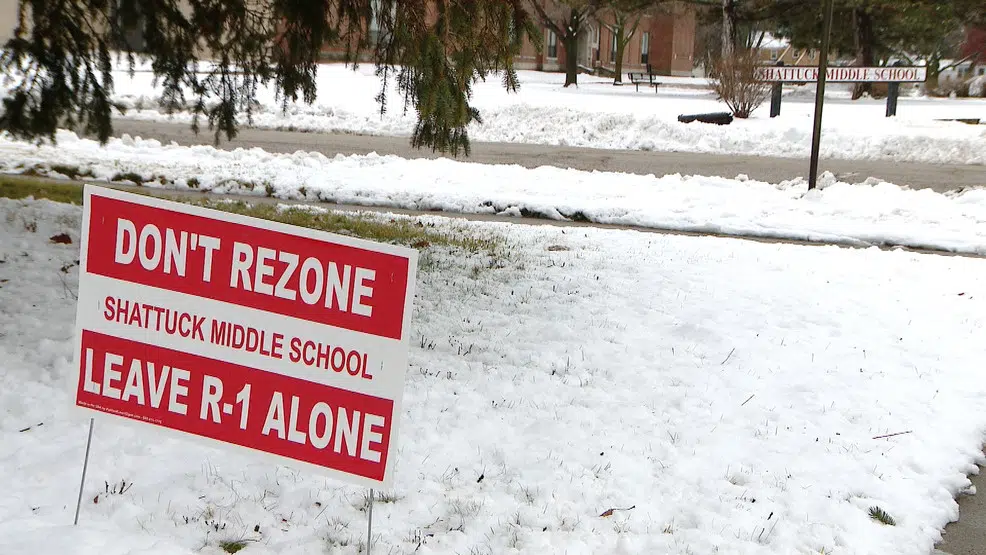NEENAH, WI (WTAQ-WLUK) – The city of Neenah is facing a federal lawsuit after the Wisconsin Institute for Law & Liberty followed through Monday on its ultimatum from earlier this month.
The lawsuit alleges that the city violated residents’ First Amendment rights when it sent a letter, ordering signs opposing the rezoning of Shattuck Middle School be removed. The Neenah Police Department officer who issued the violation notice is also being sued “in both her individual and official capacities.”
WILL sent its own letter, demanding that the city stop “stifling their right to First Amendment-protected speech,” but WILL says the city did not comply.
The rezoning project has garnered quite a bit of controversy, as the Neenah School District plans to sell the vacant school building to a developer. The signs opposing the redevelopment read: “Don’t Rezone Shattuck Middle School Leave R1 Alone.”
In a brief filed Monday, WILL writes:
While City officials may disagree with [those] who oppose the rezoning of the property, the City (through the Police Department and Code Enforcement) does not get to choose sides, determining who can speak on this issue and in what manner.”
WILL went on to say that “the City should know better.”
WILL argues that the city’s sign ordinance as a whole is unconstitutional, referring to a 2015 Supreme Court case that prohibits the banning of signs based on content.
The ordinance generally prohibits signs from being displayed without a permit; however, some signs do not require a permit. This is the crux of WILL’s argument, saying that the content of the signs cannot dictate their treatment.
“The city’s sign ordinance is unconstitutional, and we as a community have every right to express our ideas—even through a simple yard sign,” said Timothy Florek, who is being represented by WILL. “If we are not permitted to speak on a matter of public concern, then we simply lose the privilege of a government accountable to the people they were elected to serve.”
Those in violation of the city ordinance may face a non-compliance fine of up to $500 for the first offense and up to $1,000 for each following offense.









